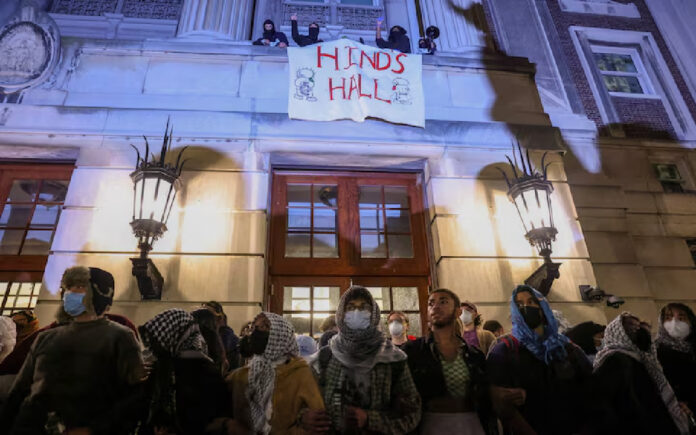New York: Columbia University has made a significant change to its commencement proceedings, opting to cancel its main, university-wide ceremony slated for May 15th. Instead, smaller, school-based events will take precedence. This decision comes in the wake of weeks of protests, particularly surrounding pro-Palestinian sentiments, which have unsettled the Ivy League institution.
In a statement, Columbia announced the shift, emphasizing the challenging nature of recent events within the community. The university expressed its intention to focus on individual recognition through Class Days and school-level ceremonies, aiming to honor students alongside their peers in a more intimate setting.
The protests at Columbia have garnered national attention and have sparked similar demonstrations at numerous universities across the United States. Students have been vocal in calling for a ceasefire in Gaza and urging their institutions to divest from companies with ties to Israel.
Also Read | Hezbollah Claims Drone Strike Hits Northern Israeli Town, Reports of Casualties
Amidst the unrest, some universities, including Columbia, have resorted to deploying riot police to disperse and detain protesters, citing concerns for campus safety. However, such actions have faced criticism from civil rights groups, who argue that they infringe upon free speech rights and resort to unnecessary violence.
The ongoing conflict in the Middle East has contributed to heightened tensions on college campuses, prompting several institutions to modify or cancel commencement ceremonies altogether.
Columbia’s decision to alter its commencement plans followed consultation with student leaders. Most of the ceremonies, originally scheduled for the university’s upper Manhattan campus, will now be relocated to the main athletic complex approximately five miles away, where the majority of protests have occurred.
Also Read | North Korea Celebrates Kim Jong Un’s Birthday with Loyalty Oaths
Meanwhile, recent events at other universities, such as the University of Southern California and the University of California, Los Angeles, underscore the broader impact of the Palestinian-Israeli conflict on academic settings. These incidents have led to arrests, clashes between opposing groups, and administrative responses aimed at enhancing campus safety.
The creation of a new Office of Campus Safety at UCLA, led by former Sacramento police chief Rick Braziel, highlights efforts by academic institutions to address security concerns and maintain a conducive environment for learning and expression.



